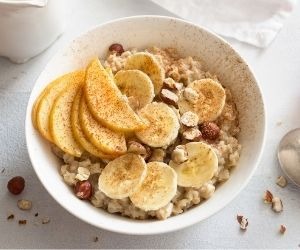As soon as you learn you’re pregnant, you may begin to wonder about the best option for feeding your baby. There are many options for you to choose and your decision may be based on health, circumstance or maybe just personal preference. The three main choices are breastfeeding, bottle feeding with formula or pumping breast milk and then using a bottle with the breast milk. In this article we are going to look at the basic pros and cons of breastmilk vs formula and hopefully you will be better informed so you can decide what is best for you and your baby.
Benefits to Breastfeeding
Breastfeeding is natural
As women, our bodies automatically make breast milk. During pregnancy, our breasts prepare the special milk ducts and nipple to be able to feed our baby as soon as they are born and give them the proper nutrition. According to KidsHealth.org, breast milk is gentler on a baby’s digestive system. Components such as lactose, protein and fat and are easily digested by newborns helping the baby to grow at a positive rate and lower acid reflux and indigestion.
Breast milk is the healthiest option
Your baby spent about 40 weeks growing inside your womb, soaking up all your healthy antibodies and becoming used to your specific foods. In the same way, breast milk helps babies to grow their immune system against bacteria and also promotes brain health.
It’s Free!
When you become a new mom, the last thing you want to worry about is finances. Your body naturally creates your breast milk from what you already eat so there is no extra cost to feeding your baby which means less stress for you.
Challenges and Options for Breastfeeding
You may feel a loss of freedom
Especially in the early months, babies eat a lot. As a newborn, your baby will need to eat every two hours. As they get older they will need to eat less frequently but they will still need you there as a regular source of food during the day. Some women may find frequent feeding difficult with their work and social schedules. Breastfeeding requires a big adjustment to your normal social or work life after giving birth. Often, women will combine breastfeeding with pumping, which they can do at work or in a public or private restroom, if needed.
Breastfeeding can be difficult and painful
Even experienced moms can have a hard time getting each individual child to breastfeed. It’s common for babies not to latch (immediately attached to your nipple) and there may be issues with the milk supply and it’s too painful once the baby does latch. Some causes of pain while breastfeeding could include mastitis, breast engorgement, plugged milk ducts, and sore nipples. Women who have endured the initial pain will tell you that it was worth it. Others who experience issues like mastitis will also tell you it’s so excruciating and problematic it’s just not an option. If you experience any symptoms that may be related to these issues, you should consult your doctor right away.
Your partner and feeding the baby
In some cases, your partner might want to be involved in helping to feed the baby. If you are exclusively breastfeeding this isn’t an option. While this is admirable, if you are struggling with sleep and want your partner, parent or helper to assist during night time feedings, pumping is a great option. As mentioned above, you can pump your breast milk and have it available for your partner to give to the baby. It’s best to try this in the day though, as some babies may not take easily to a bottle and this will take time and patience to train them. Once your baby gets used to bottles, your can pump extra for night time feedings and hopefully get some extra sleep.
What you eat may affect the baby
Some mothers discover that their baby becomes “colicky”, or irritable, when they eat certain foods or drink certain beverages like dairy. Colic is generally related to an upset tummy or intestinal disturbances in the baby. Some babies are intolerant to dairy and spicy foods, and this can make them gassy. Be mindful of the foods you eat and the beverages you consumer, and how they affect your baby when breastfeeding. Keeping a diary can also be helpful when breastfeeding.
Benefits to Formula
Technology has made formula better than ever
In the past, many families stayed away from formula because of the nutrients that their baby would not get. But now with new research and better science, the formulas that are available in stores mimics breast milk and has all the necessary ingredients growing babies need.
There’s a very small chance your baby will get sick
According to Web MD “while breastfed babies may have relatively fewer infections, the vast majority of infants won’t get a serious infection in the first months whether breast- or bottle fed”. Babies need about six weeks for their immune system to grow so most doctors suggest to keep them away from large groups until their immune system is built up. Formula has not been found to heighten the risk of sickness in children.
You may feel less stressed
By choosing to use formula, you will have more freedom to leave the house, have a partner or family member help you with feeding the baby or feel more free to feed the baby in public without feeling exposed.
Downsides to Formula
Formula can get expensive
TheSimpleDollar.com found that the average price of formula is 19 cents per ounce. If you multiply that over how much you’ll need for your infants first year of life that’s about $1,733. That’s a lot of money. And, depending on the type of formula you choose it could be more if you find a certain brands works best for your child.
Formula fed babies have more tummy problems
With their brand new digestive system, formula might be harsher on their systems than breast milk because it doesn’t contain the natural enzymes found in fresh milk from the mother. Formula is not 100% water soluble like breast milk and so this may lead to diarrhea, constipation or upset stomach.
Consistency is key
Many new moms may find that their babies are very sensitive to taste and smells. Each brand of formula is going to have their own unique taste and it may take a lot of tries to figure out which one baby likes. This might lead to wasted formula and wasted money.
While a lot of people around you might pressure you to choose one or the other, remember that the decision to breastfeed or bottle feed is personal and based on your unique situation and your baby’s needs. What any Mom and baby should do may depend on both her health and that of her baby’s. It is important to consult with your medical service provider.
Source: verywellfamily.com/what-are-the-pros-and-cons-of-breastfeeding-431895, thesimpledollar.com/how-much-money-does-breastfeeding-really-save/, kidshealth.org/en/parents/breast-bottle-feeding.html













































